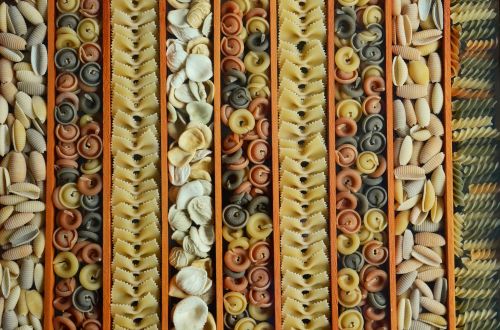Judith's Jottings » Blog Home Page
The invaluable art of sorting - 31st March 2021
Sorting doesn't exactly sound like masses of fun, does it? I want you to know it is worth thinking about though. Really, sorting is at the heart of successful decluttering, not to mention successful storage.
Think about your clutter. It's probably in various random rooms in various random heaps. Or just randomly spread around everywhere. Notice how I've already used the word 'random' three times. Clutter IS random! That's what makes it clutter really. Oh, and the fact that there is so much of it.
How to resolve clutter
In short, you need to arrange the items in such a way that they are no longer random. Arranging them into small piles and giving those piles some meaning is the first step in that process. When I say 'meaning' I suppose I really mean 'connection'. So for instance your big random pile of stuff could be split up like this:
A pile of socks
A pile of books
A pile of paperwork
A pile of candles
Yes, I know! That's a pretty unusual random heap of stuff we are talking about here. But trust me, I have found all these items in clients' random heaps of clutter. 'Random' can't exist when you impose meaning or connection to groups of items. Once you have established your own meaningful categories then you can gradually remove the random element from those muddled possessions. Items that are connected in some way end up together and they are separated from those things with which they have zero connection.
Dive in!
You need to be brave. The thing is you can't begin this task already knowing all the categories you will have for sorting purposes. It's only when you have a bit of a look at that huge heap of stuff that you get a feel for whether there's lots of paperwork, or lots of clothing, and what other categories are part of the mix.
Be flexible!
If this random heap of yours is a big one you might not even work out what all the categories are at the outset. You might have say three categories because you can see stuff or remember what you chucked onto the heap. But, you could easily get to the bottom of this heap and realise you need two more categories! You can be forgiven for not remembering that you left several pairs of socks under your paperwork, for instance. The beauty of creating these categories is that you can add stuff from other areas and soon get to a point where you can confidently declutter things you know you don't want because everything which is related is in a pile of its own. This is how you realise you have too many white T-shirts for instance. Or that the bank keep sending you the same promotional leaflets about credit cards.
Logical storage
This is my term for the kind of storage where you don't have to remember exactly where you put every single thing you own! Phew! Quite often when I explain this concept people are shocked, but relieved. They really have no idea how easy it can be to store things and ensure that they find them again with ease.
The clue is in the sorting exercise you have just done!
Having sorted clutter into categories that means you know what you have and how much. Similar things need to be stored together. Any other approach is re-introducing chaos and disorder. Chaos means you have no idea where anything is! Use your logic to connect items into a specific category. When you've done that you can create sub-categories and even notice links between different categories. This is what will inform your storage decisions.
An example might be the category of "paperwork". If you just stored this category as it is, the chances are you would struggle to find things. Think about how "paperwork" is bound to consist of multiple smaller categories. Certain categories of paperwork might link back to categories of different items, perhaps? This is not necessarily a quick job - but it can be hugely effective. It's good also to realise you might not get it right first time. Sometimes the logic for a category seems great, until you put it into practice. That's OK, you can change things so your system is more effective.
Want to know more?
If you like the sound of this system but aren't too sure how it might work for you, please get in touch. I am planning a Zoom workshop in the near future on this very topic. You will get some guidance and the chance to ask questions about your own organisational challenges.
Keywords: storage, sorting
Click here to go back to the blog index

